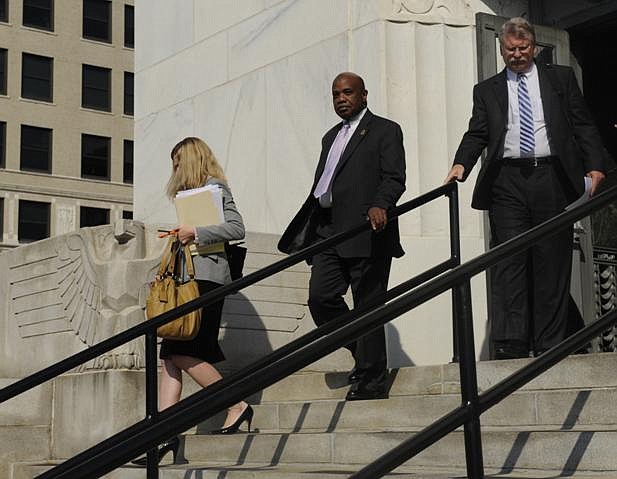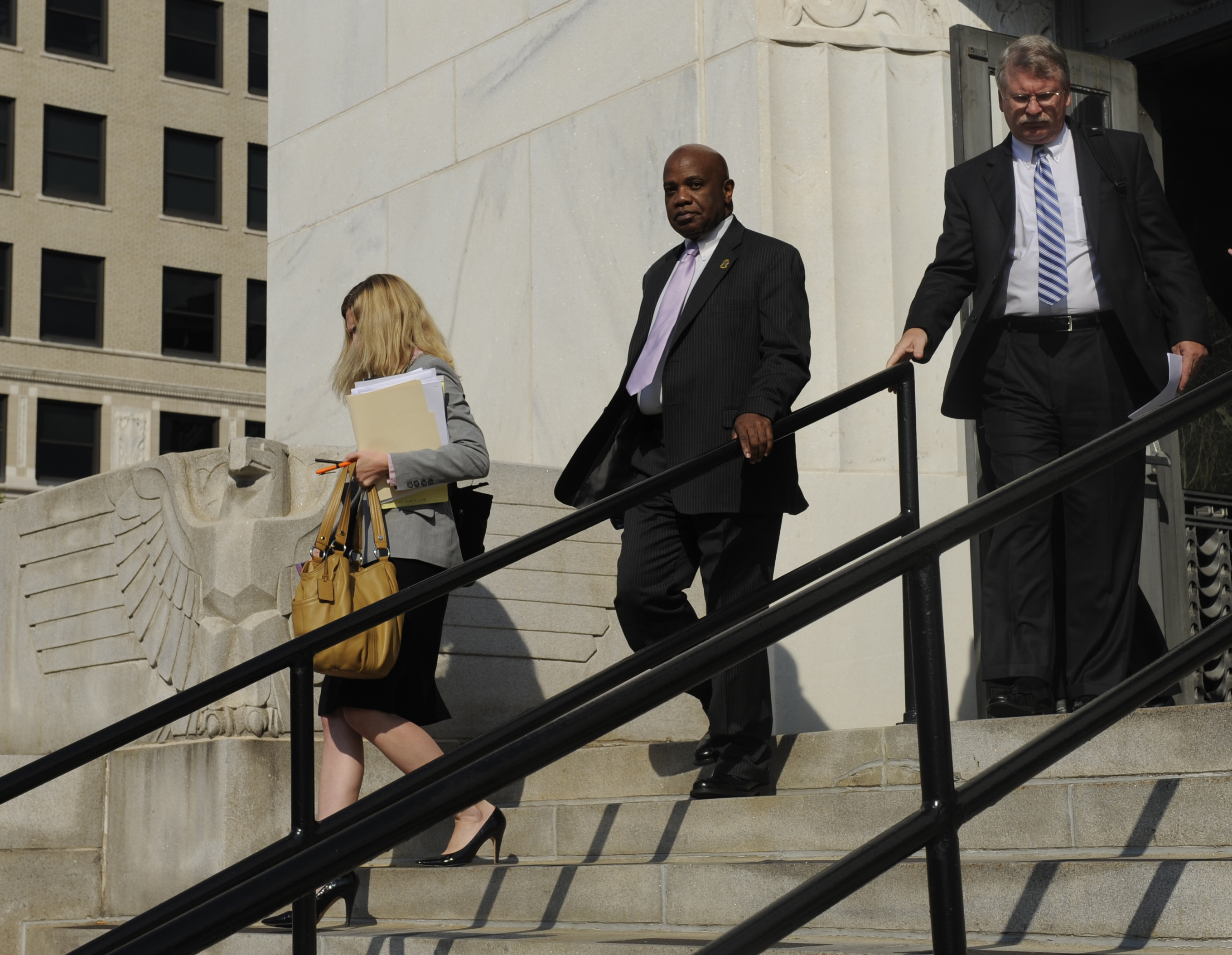Former Chattanooga Police Chief Freeman Cooper testified in federal court Tuesday that he fired a former police officer because a city-retained psychologist deemed the man unfit for duty.
Cooper will resume testifying today, the third day of a U.S. District Court trial in which former officer Mickel Hoback claims Chattanooga wrongfully fired him because he had been diagnosed with post-traumatic stress disorder after serving in Iraq.
Hoback is suing the city to get his job back with pay and benefits and $1.5 million in related damages from the termination.
Cooper, a Vietnam War veteran, said he was "alarmed and concerned" at initial reports that, on April 14, 2009, Bradley County sheriff's deputies were looking for Hoback after a doctor had ordered he be committed to a veterans hospital as a suicide risk.
In testimony, Cooper said he called Hoback's supervisor, who told him the officer had called in sick earlier that morning, saying he was being transported by ambulance to the hospital for bleeding of the brain.
"It scared me to death," Cooper recalled.
He then put Hoback on administrative leave with pay and met with him when he returned to work two days later.
"It was my decision that someone else needed to make the evaluation before I let him be armed in the city of Chattanooga," Cooper testified.
Hoback underwent an evaluation by Donald Brookshire, a psychologist hired by the city. Brookshire's report deemed Hoback unfit for duty related to PTSD he'd sustained while serving with the Tennessee Army National Guard in Iraq.
Chattanooga officials discussed with Hoback other jobs he might take with the city, but Hoback wanted to remain a police officer.
In testimony Monday, Hoback disputed whether there were jobs available and that he was told he'd have to resign from the city and reapply for another job.
In July 2008, Cooper fired Hoback.
Phillip Lawrence, one of Hoback's two attorneys, pointed out the Tennessee law that prevented people with a mental health condition from being police officers had been ruled a violation of the federal Americans with Disabilities Act years before Hoback was let go. In 2003, the Tennessee attorney general agreed not to enforce that portion of the state law.
But it was the overruled Tennessee law that determined part of his decision to fire Hoback, Cooper testified.
In earlier testimony Tuesday, Hoback's Vet Center counselor Michael Bearden gave explanations of his counseling notes and said he never thought Hoback was a suicide risk or a danger to others.
Bearden testified that the doctor who had ordered Hoback to the vet hospital had a history of such choices, all of which were overruled by the head psychiatrist at the Murfreesboro, Tenn., facility.
Hoback was released the morning after his admittance to the hospital with a letter that stated he could return to previous activities. Doctors at the clinic determined he was not a suicide risk.

